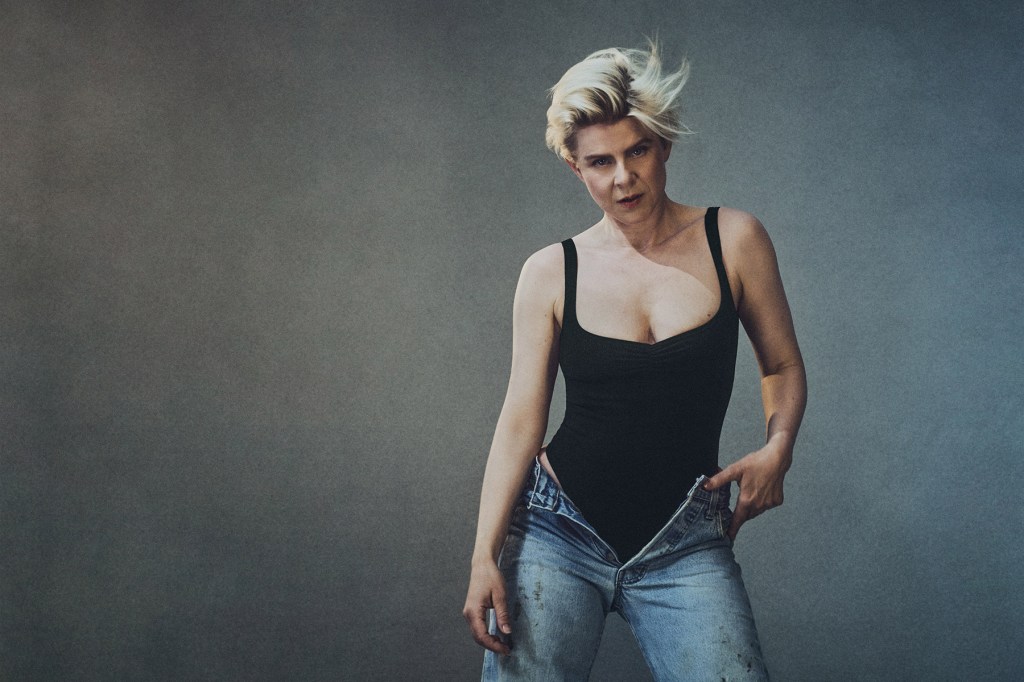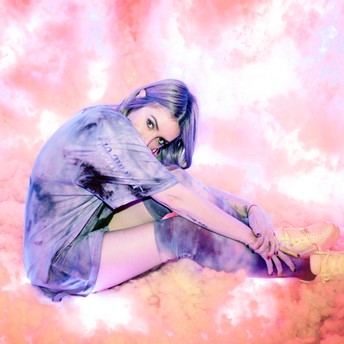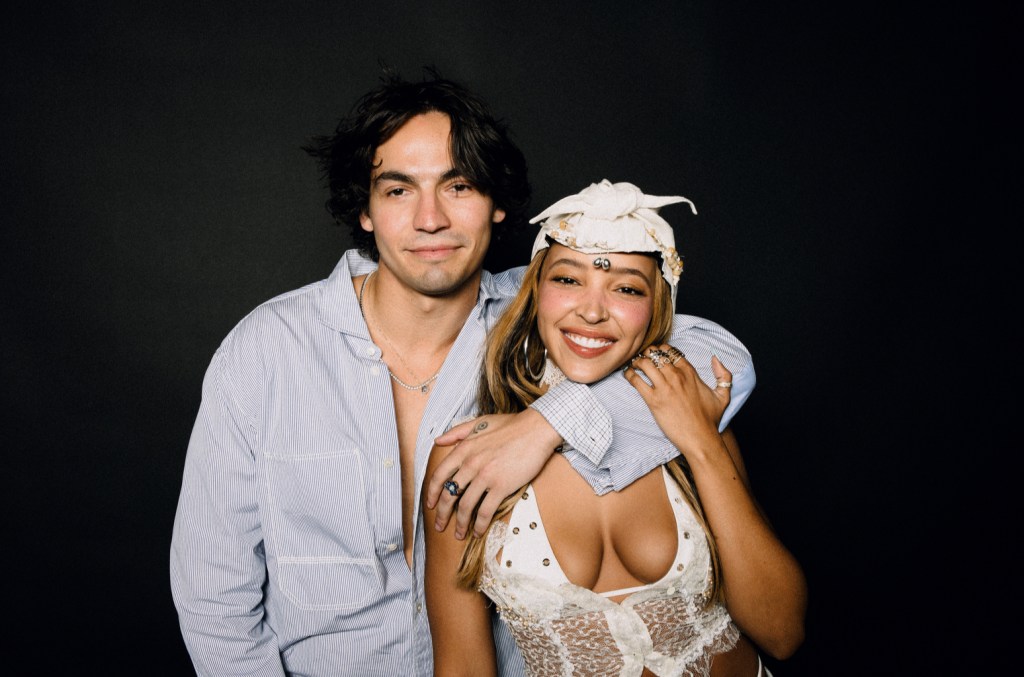genre dance
Page: 3
Trending on Billboard
Damian Lazarus’ longstanding Day Zero party will debut in Bali in 2026. The Indonesian island’s first edition of the event is set to happy April 17, with the lineup to be announced in the coming months.
The expansion makes an already major year for Day Zero even bigger, as in June Lazarus announced that Day Zero’s first Brazil edition will also happen on Jan. 3 in São Miguel dos Milagres, Brazil, located on the country’s northern coast in the state of Alagoas. Day Zero also returns to its original location in Tulum, Mexico on Jan. 10, 2026 with a lineup featuring Mau P, Seth Troxler, Nicola Cruz, Lazarus himself and many others. The event has happened annually in this location since 2012, taking off in 2018 and 2021.
“There was never a concrete plan for Day Zero beyond our spiritual home in Tulum,” Lazarus tells Billboard of Day Zero’s new editions. “Over the years, however, my team and I have traveled to many far-flung places, exploring new opportunities—often at the invitation of established event producers and promoters. We’ve been deliberate in our expansion, never wanting to rush into anything that didn’t feel completely right for all of us.”
Day Zero Bali will be produced in partnership with the Savaya Group, a production team that puts on dance-focused events in Bali, Jakarta and beyond, and with whom Lazarus crossed paths with during his travels to the island.
“Some years ago, I also began exploring Bali as a potential destination to weave our magic,” he continues. “As I spent more time there, immersing myself in its rich culture, traditions, and cosmic energy, I fell deeply in love with the island. That connection led me to begin a dialogue with the Savaya Group, whom I immediately recognized as the perfect partners to help bring to life the vision I had been nurturing—a spectacular festival set in a truly extraordinary place I discovered.
Lazarus continues that the reason for the two new editions of Day Zero in 2026 is that it “just feels like the correct time to expand, in my soul. The Day Zero team comprises of incredibly talented people who connect in a very special way once a year in Mexico to create an other-worldly experience. We discussed the idea of bringing our love and honorable intentions to other special places and agreed that we were capable of building on what we have created so far; we all heard the call to make this kind of magic in a handful of other places.”
He adds that each site helps inspire the artist he books to play the event, saying that “every location speaks to me in different ways. I have to look at the location and try to imagine what would and would not work in each. I try to create a list of artists whilst walking the site, imagining how we will transform the site and what kind of sound and which kind of artist and personality will shine there.”
He also advises that these will be the only three editions of Day Zero to happen in 2026, given the demands of producing these shows. “We never want to water down our ethics, our care and attention to detail, our sustainability activations, or our performance led, heartfelt connections to mystical indigenous people and traditions.”
Trending on Billboard Electronic music producer Gryffin has returned to WME seven months after making a jump to Wasserman. WME agents Kyle Bandler and Brett Schaffer will represent him in all global territories. A longtime figure in the dance/electronic scene, Gryffin is managed by Myles Shear and Parker Aimers at Palm Tree Management. Shear and […]

Trending on Billboard Robyn has released her first new single in seven years. Out Wednesday (Nov. 12) via Jamie xx’s Young label, “Dopamine” is a soaring, sparkling and characteristically sophisticated dancefloor anthem. Made with longtime collaborator Klas Åhlund, the track comes with a striking video directed by London-based photographer Marili Andre. Watch and listen below. […]
Trending on Billboard
Lightning in a Bottle dropped their 2026 lineup early this year, with the event’s organizers presenting a major bill for the fest this May.
Leading the lineup are art electronic legends Empire of the Sun, Dutch phenom Mau P (whose August track “Tesla” is currently at No. 1 on Dance/Mix Show Airplay), hard techno arbiter Sara Landry, bass OGs Zeds Dead, UK D&B legends Chase & Status, R&B queen Tinashe, UK fav Barry Can’t Swim and Brazilian whirlwind Mochakk.
Beyond that, the bill features Of the Trees, Billboard’s September Dance Rookie of the Month Jigitz, Overmono, Daily Bread, Lee Burrdige, Hot Since 92, Nia Archives, Dimension, Alleycvt, Jayda G, and many more. See the complete lineup below, with this lineup poster’s design nodding to the festival’s longstanding Mixtape stage, where DJs play classic cuts on cassette all weekend long.
Additionally, after first collabing with legendary L.A. club night A Club Called Rhonda last year, the party will be back for another takeover at the Crossroads Stage, with the longstanding D&B party Respect DnB, the party Baile World and afrobeat/amapiano/dancehall party FMLY BZNS all also hosting nights at Crossroads. LiB will also, as always, host myriad talks, workshops and yoga sessions over the weekend.
Lightning in a Bottle 2026 will mark the 23rd edition of the independent festival. It happens over Memorial Day weekend, May 20-24, 2026 at Buena Vista Lake near Bakersfield, Calif.
Tickets for for the fest go on sale on Nov. 14 at 11 a.m. PT.
Lightning in a Bottle 2026
Courtesy Lightning in a Bottle

Trending on Billboard
Entertainment management company Milk & Honey Music + Sports has acquired U.K.-based firm Bigfoot Music Management, Milk & Honey tells Billboard.
Under the terms of the deal, Bigfoot is being absorbed by Milk & Honey, meaning the firm will exist entirely under the Milk & Honey banner. As a result, Bigfoot’s current staff will now be part of the Milk & Honey team, and its entire client roster, which includes pioneering electronic producers Adam Beyer and Joris Voorn, will become Milk & Honey management clients. Beyer’s longtime manager, Jeremy Ford, will be senior vp of electronic for Milk & Honey globally and be based in the company’s London offices.
Related
The move further expands the dance/electronic footprint at Milk & Honey, as the company hired longtime music manager Andrew Goldstone as head of electronic music this past March. Goldstone brought manager Taren Smith into the company, along with clients including the dance/electronic artists Kream and Sullivan King.
“As diverse as the Milk & Honey brand is in mainstream music genres, we are equally invested in underground music,” Milk & Honey founder and CEO Lucas Keller tells Billboard. “The company looks after unique talent across all facets of the music business, and this deal with Bigfoot to join Milk & Honey represents a further investment into techno and electronic music which is a top priority for the company. We are very excited to have Jeremy and his team in our UK office and joining the global M&H outfit.”
Over the years, Ford and his team have helped guide and grow international dance brands, including Beyer’s Drumcode label and Voorne’s Netherlands-based house and techno label, Spectrum. Other artists on the Bigfoot roster who will now be represented by Milk & Honey include Juliet Fox, Sarah Story, Sam Wolfe, Simon Patterson and Will Atkinson.
“Over the past three decades, Jeremy Ford and Bigfoot Management have built one of the most respected operations in electronic music,” adds Milk & Honey head of artist management & sports Dave Frank. “From Adam Beyer and Joris Voorn to the iconic Drumcode brand that encompasses record label, events, fashion and globally syndicated radio, their team has played a big role in shaping modern techno and house. We’re thrilled to welcome the Bigfoot team into the Milk & Honey family as we combine our networks, relationships and resources in representing and growing world-class talent who are and will be the global stars that drive our scene into the future.”
“Since its inception, Bigfoot has always championed talented artists who possess authenticity and ambition as well as brands, labels and events that also share a purposeful, global vision,” says Ford. “We’ve always strived to embrace, nurture and develop visionary leaders within the scene. Joining Milk & Honey represents an incredible opportunity for us to expand our reach and strengthen our ability to serve artists in a wider capacity. We share the same values, drive, work ethic and belief in building long-term careers so with this partnership and the fusion of two such talented teams we look forward to an exciting future that will no doubt shine a brighter spotlight on those we represent.”
Trending on Billboard
Alison Wonderland has delivered her latest production: a baby boy.
On Monday (Nov. 10), the electronic producer announced that she’s given birth to her second son, writing “Welcome to earth, Ash West. Baby bro is very chill & loves listening to anything electronic at 140bpm (almost a week old & kid already has taste). s/o to the drs, nurses and the NICU for being awesome.”
The Australia-born, Los Angeles-based producer also shared several photos of herself and her new baby. See the post here. Wonderland and her husband, the filmmaker Ti West, also have another son, Max, who was born in the summer of 2023.
Explore
See latest videos, charts and news
The post’s comments section is naturally a celebratory space, with fellow electronic artists including Anna Lunoe, TroyBoi, Slander, DJ Dave, Diplo, Mary Droppinz and many more expressing their congrats.
Baby Ash is the first of two very big projects Wonderland is dropping in this time period, as the producer’s fourth studio album, Ghost World, is coming Dec. 5. (While it was originally scheduled for an October release, production delay issues pushed the project to December.)
“I am in a completely different part of my life now,” the artist born Alex Sholler told Billboard when announcing the album in August. “I met and married the love of my life and created another life, aka my baby Max. … I really felt free sonically when making [the 2023 albums Genesis made under the Whyte Fang alias.] I realized going back to my roots musically is the only way for this next Alison Wonderland album to feel genuine. I got rid of all the outside voices; I felt like I was letting people dictate my art and my voice.”
Thus far four singles from Ghost World hve been released, “Again? F–k,” “XTC,” “Psycho,” “Get Started” and “iwannaliveinadream.”

Trending on Billboard
After a year-long hiatus, Envision Festival is returning to Uvita, Costa Rica this February. Attendees will once again be able to revel in the electronic-focused music, workshops and lush jungle setting that have defined the fest since its 2011 debut. Now, Envision organizers are announcing a host of changes and upgrades designed to optimize the 2026 edition.
Explore
See latest videos, charts and news
“We have listened, and we have put changes into action,” Envision co-founder Josh Wendel tells Billboard. “We are now ready to share how we are evolving and how we will deliver a better experience.”
On Monday (Nov. 10) Envision organizers unveiled a long list of improvements for the 2026 fest, happening Feb. 23-March 2 at its longtime site in a beach-adjacent swatch of jungle on the Pacific Ocean side of Costa Rica. The festival’s phase one lineup includes Bob Moses, CloZee, Daily Bread, Emancipator, Goldcap, Justin Martin and many others, with more artist to be announced in the coming weeks. Envision also offers a wide array of yoga, movement and sustainability classes, along with other workshops.
The announced changes follow a challenging 2024 edition, which found attendees citing sanitation issues and some attendees reporting that they experienced gastrointestinal illness while at the fest. Envision did not happen in 2025 as organizers regrouped, with Wendel transitioning from his production leadership role to leading the entire event, of which he also became the sole owner.
“After 2024 there were operational challenges we acknowledge that we had to fix, so in 2025 we chose the theme ‘back to our roots,’” Wendel says of the 2026 event’s guiding ethos. ” It was like, ‘What are we doing? Why are we doing it? How are we doing it? It became this deep, introspective journey of dissecting every little element of why I initially started it and the impact that it’s had.”
Originally from Florida and a Costa Rica resident for the last 22 years, Wendel speaks to Billboard from his home in Costa Rica, joking that he’s usually barefoot in the jungle. The updates he and the team developed emphasize that health and safety is Envision’s top priority and note that an audit of the 2024 event revealed multiple reasons for why people experienced GI issues, with “many people [getting] sick from viruses that were brought into the festival by travelers coming to the festival. For many people, moving into the jungle environment of Costa Rica and being exposed to different microbes is enough to trigger GI issues.”
Organizers are unrolling multiple methods for eradicating these issues in 2026. “It’s a hyper-focus on safety, on our medical team and on analyzing every which way that we can do that, including having a medical supervisor and a different medical team,” says Wendel. “You wouldn’t want to put this on the lineup poster, but health and sanitation are our headliners this year.”
As such, 2026 attendees will find separate stations for hand washing and water bottle refills. (While they were also separate in prior years, attendees did not treat them as such, so water will thus become a destination via a dedication water refill station called the Templos de Agua.
“It’s the jungle, and people are coming from all over the world to gather,” Wendel continues. “Obviously there is the self-care component we must continue to message to make sure people practice self-care as we give them the tools to do that. Wash your hands, use hand sanitizer, get some sleep, take care of yourself.”
As such, each festivalgoer will also be provided with a comprehensive guide to staying healthy while in Costa Rica that’s been developed in partnership with local doctors, health professionals and the Costa Rican Ministry of Health.
Another major change is the approach to toilets. Envision 2026 will provide more port-a-potties with more frequent pumping and better placement. Envision 2024 debuted a waterless, off-grid sanitation model using dry-composting toilets. The 2026 fest will improve upon this system by swapping out all tanks prior to guest arrival, so each system is fresh and empty at the start of the event. Carbon filters and improved ventilation will also be installed to reduce bathroom-related odors and increase airflow. A dedicated onsite maintenance team will service toilets more frequently during the fest to optimize cleanliness, hygiene and comfort.
After the festival, waste from these dry-composting toilets will be sealed and transferred to a long-term curing area where it will compost for 12–18 months, ensuring full pathogen elimination before it’s used for off-site organic fertilizer.
Envision has also brought in a new medical director, a Costa Rican doctor whose experience includes working with international film and television productions in the country and who is also part of a team that provides medical assistance to large-scale events in the U.S. This person will also work with a local medical team and in partnership with a local clinic, hospital and Ministry of Health and help hire more local people for the Envision lifeguard team that keeps watch over the festival’s beach area.
Expanded sustainability initiative will include water conservation guidelines and compostable cups, plates silverware and other serveware. Organizers predict that these compostable items will significantly reduce water consumption by eliminating the washing necessitated by a now phased out reusable dish program. Along with the water-free composting toilets, the production team is also installing low-flow showerheads and encouraging short showers for all guests.
“We’re not a luxury hotel,” says Wendel. “It is the jungle, and we are committed to doing everything to make it as convenient and comfortable and as easy as possible.”
Envision is also working closely with community partners and the organization who manages the local water supply to create a new on-site water system that ensure that the fest will have enough clean water and will also reduce the impact of Envision on the water flow of the nearby town. This system has been designed experienced engineers and will include filters, pumps, treatment, storage tanks and water distribution infrastructure.
Envision Festival
Courtesy of Envision Festival
These programs are particularly crucial given that Envision happens in an environmentally sensitive area, with the lush jungle setting, beach access and deep nature immersion provided by the fest being a huge part of its appeal. Envision happens at Rancho La Merced, located less than a mile north of the breathtaking Marino Ballena National Park, a protected marine sanctuary that’s home to humpback whales, spotted and bottlenose dolphins, manta rays, parrotfish and mackerel.
The festival site, which Envision leases from its owners, is itself home to emerging mangrove forests, creeks, freshwater canals, a host of tree and plant species, birds, monkeys and other wildlife.
“People come for the headliners, but then they’re barefoot in the jungle and jumping in that ocean, and doing yoga and drinking from a coconut and seeing monkeys and something clicks,” says Wendel. “People get inspired. The music is like a bait-and-switch.”
But there is of course the push/pull of bringing thousands of people (many of whom are looking to party for a week) to such a ecologically delicate area, an issue many festivals that happen in special places in nature must grapple with. “When you talk about environmental impact, I look at it as 10 steps forward, then one step back, with a little traffic and boom boom bass [during the festival itself], then 10 steps forward,” says Wendel.
Envision has put this into action by reforesting the site, where many of the trees were cut down in the mid-20th century to make space for a cattle pasture. Over the years, Envision has helped plant Ylang Ylang and fruit trees throughout the grounds and at Rancho La Merced and has also planted beach almonds in the campgrounds for shade. Before and after photos from 2014 to 2024 show an impressive expansion of trees and foliage on the site. Organizers have also worked with local organizations to plant in the surrounding area to protect water sources and provide biological corridors throughout the Rancho La Merced property.
Envision Festival
Auudrey
To mitigate the impact of attendees on the festival on the site, the 2026 edition will also reduce capacity by roughly 2,000 people, bringing down overall attendance to approximately 5,500. (The amount of temporary infrastructure built on site will also be reduced.) This decreased headcount also factors in reducing travel from international Envision staff, with the focus being to hire as many local people as possible to mitigate impact, create jobs and keep the event local.
The fest is also leaning into this local component by bringing in more products from local vendors. This will include local produce kombucha brewed in Uvita, beer from nearby Dominical, cacao from local regenerative farms and herbal elixirs, mixers made in the region using native plants and locally grown herbs and compostable plates, cups and containers made in Costa Rica.
All of these changes are coming in tandem with a phase two lineup Wendel calls “by far the most exciting phase two that we’ve ever had.” While he’s tight-lipped about who it might be, he says this lineup expansion will likely be announced this month.
Over Zoom Wendel seems sincerely excited these changes and clear-eyed about the reasons for them. Many event producers often receive severe verbal abuse on social media when elements of an event go wrong, an experience Wendel says was not necessarily pleasant, but ultimately useful.
“Even when the feedback comes off as ugly and emotionally vomiting, I’m never losing sight of who I am or who we are as an organization. It’s about being able to pull out what valuable information I can that can actually make this event better.
“It’s psychological warfare right now, with the amount of anger, frustration and hatred,” he continues. “So [for me] it’s about asking how we can be vulnerable leaders? How can we be honest? How can we be humble? It’s about acknowledging mistakes and being proud of your desire to grow and learn from those mistakes… I’m making the best decisions I can make from the best information I have.”

Trending on Billboard
Salt-N-Pepa‘s Spinderella is now the first female DJ ever inducted into the Rock & Roll Hall of Fame.
The historic moment happened Saturday (Nov. 8) during the the Rock & Roll Hall of Fame induction ceremony at Los Angeles’ Peacock Theater, where Salt-N-Pepa were inducted into the Hall of Fame.
After a speech from Missy Elliott, the trio performed a medley of their classic hits including 1987’s “Push It” and 1993’s “Whatta Man,” for which they were joined by the song’s original collaborators En Vogue.
The trio then made its own acceptance speeches, with Salt-N-Pepa DJ Spinderella, whose real name is Deidra Muriel Roper, noting that the honor makes her the first female DJ ever inducted into the Rock & Roll Hall of Fame.
“When I started, it was a rare thing to see a woman behind turntables,” Spinderella said. “It was literally the boys club, so I had to carve my own lane. I had to show up. It was dedication; it was my craft, and I never missed a beat, in 40 years y’all… I carry every female DJ who ever dared to dream. Every woman who touched a turntable and said, ‘I can do that too.’ This is ours. Respect the DJ.”
DJs already in the Rock & Roll Hall of Fame include DJ Kool Herc, who was inducted in 2003 and Grandmaster Flash, who was inducted in 2007.
The trio’s Saturday night acceptance speech also saw Salt-N-Pepa’s Cheryl “Salt” James referencing the group’s lawsuit, filed in May, against Universal Music Group to regain control of their masters, alleging that the record company has not honored Salt-N-Pepa’s copyright clawback rights and has punished them by taking their music off streaming.
“We’re in a fight for our masters that rightfully belong to us…,” James said. “After 40 years, our streaming music has been taking down from all streaming platforms because the industry doesn’t want to play fair,” then, amid cheers, added that “Salt-N- Pepa has never been afraid of a fight.”
Trending on Billboard The nominations for the 68th annual Grammy Awards were announced Friday morning (Nov. 7), with the Recording Academy once again recognizing the dance/electronic genre across four categories: best dance electronic recording, best dance/electronic album, best dance pop recording and best remixed recording. These categories welcome back a list of familiar faces, specifically […]
Trending on Billboard Daft Punk is making contact. As part of the new collaboration with Fortnite, the French duo has released a new video for track “Contact,” the epic closer of its 2013 Grammy-winning album, Random Access Memories. The new animated clip finds the robots careening through space and borrows imagery from Interstella 5555: The 5tory […]

 State Champ Radio
State Champ Radio 






